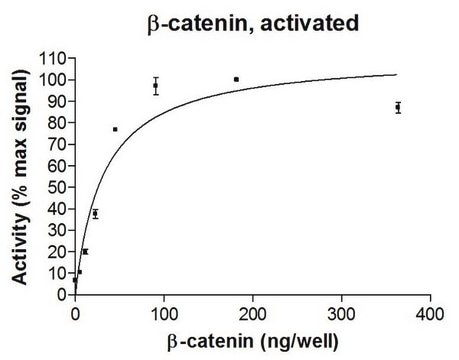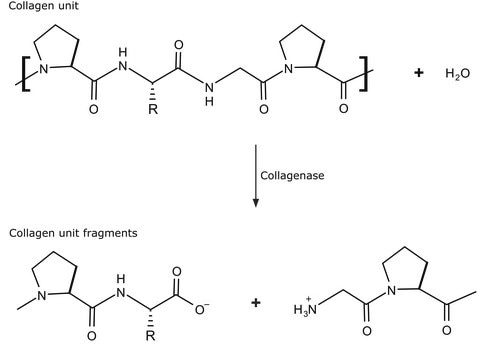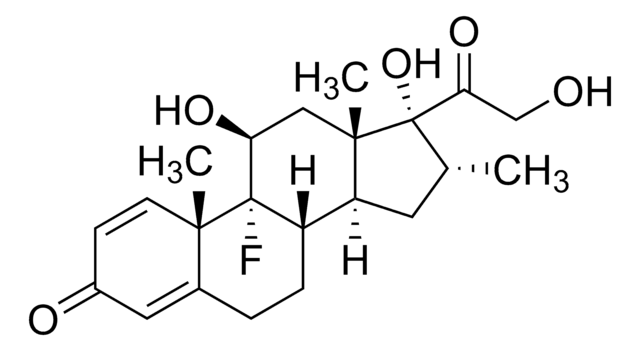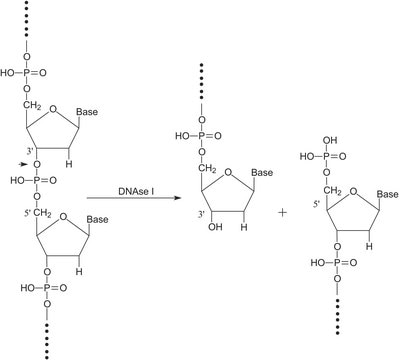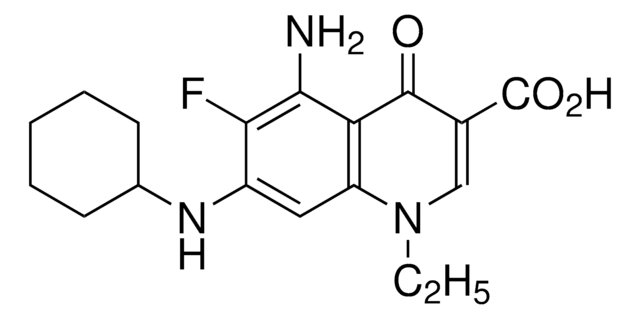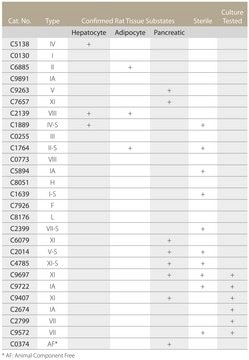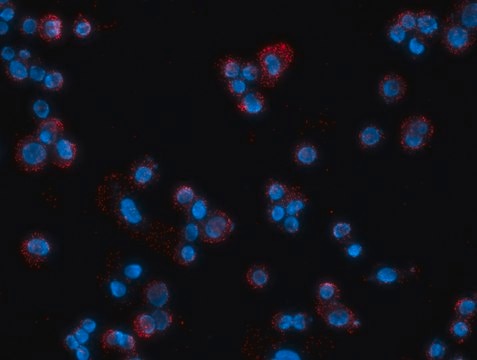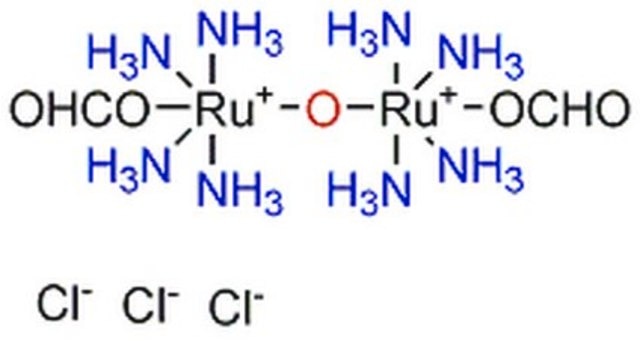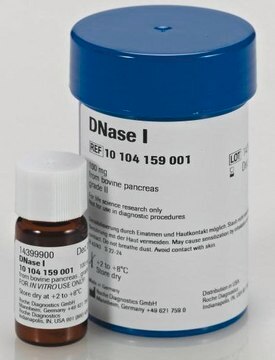SRP5172
Catenin β, GST tagged human
recombinant, expressed in baculovirus infected Sf9 cells, ≥70% (SDS-PAGE), buffered aqueous glycerol solution
Synonym(s):
CTNNB, FLJ25606
Sign Into View Organizational & Contract Pricing
All Photos(1)
About This Item
Recommended Products
biological source
human
recombinant
expressed in baculovirus infected Sf9 cells
assay
≥70% (SDS-PAGE)
form
buffered aqueous glycerol solution
mol wt
~115 kDa
technique(s)
activity assay: suitable
solubility
water: soluble
suitability
suitable for molecular biology
NCBI accession no.
application(s)
cell analysis
shipped in
dry ice
storage temp.
−70°C
Gene Information
human ... CTNNB1(1499)
General description
Research area: Apoptosis. β-catenins are cytoplasmic proteins that are ubiquitously expressed. These proteins are associated with E-cadherin at cellular junctions. CTNNB1 (catenin β-1) belongs to the armadillo family of proteins. This protein possesses a 130 amino acid N-terminal domain, 12 imperfect repeats of 42 amino acids termed arm repeats, and a 100 amino acid C-terminal domain. The gene encoding β-catenin is localized on human chromosome 3p22.1.
Application
Catenin β, GST tagged human has been used:
- as a component of protein kinase buffer for in vitro kinase assay
- in in vitro citrullination assay to characterize β-catenin citrullination
- to perform differentiation factor screening
Biochem/physiol Actions
β-catenin interacts with T-cell factor and lymphoid enhancer-binding factor (TCF and LEF) transcription factors and is an essential member of the Wingless-Wnt signal transduction pathway. The adenomatous polyposis coli (APC) tumor-suppressor protein, together with Axin and glycogen synthase kinase 3 β (GSK3β), form a Wnt-regulated signaling complex that mediates phosphorylation-dependent degradation of βcatenin by the proteasome. APC and the Siah-1 E3 ubiquitin-protein ligase-1 mediate a novel β-catenin degradation pathway linking p53 activation to cell cycle control. Activating mutations in the human β-catenin gene have been found in human colon cancer and melanomas. The protein has a role in homeostasis and development.
Physical form
Supplied in 50mM Tris-HCl, pH 7.5, 150mM NaCl, 10mM glutathione, 0.1mM EDTA, 0.25mM DTT, 0.1mM PMSF, 25% glycerol.
Preparation Note
after opening, aliquot into smaller quantities and store at -70 °C. Avoid repeating handling and multiple freeze/thaw cycles
wgk_germany
WGK 1
flash_point_f
Not applicable
flash_point_c
Not applicable
Certificates of Analysis (COA)
Search for Certificates of Analysis (COA) by entering the products Lot/Batch Number. Lot and Batch Numbers can be found on a product’s label following the words ‘Lot’ or ‘Batch’.
Already Own This Product?
Find documentation for the products that you have recently purchased in the Document Library.
Yi Qu et al.
Nature chemical biology, 14(1), 94-101 (2017-10-31)
Wnt (wingless)/β-catenin signaling is critical for tumor progression and is frequently activated in colorectal cancer as a result of the mutation of adenomatous polyposis coli (APC); however, therapeutic agents targeting this pathway for clinical use are lacking. Here we report
Mutations in beta-catenin are uncommon in colorectal cancer occurring in occasional replication error-positive tumors.
Kitaeva MN
Cancer Research (1997)
Somatic mutations of the ?-catenin gene are frequent in mouse and human hepatocellular carcinomas
Alix de La Coste
Proceedings of the National Academy of Sciences of the USA (1998)
Connective Tissue Growth Factor Promotes Efficient Generation of Human Induced Pluripotent Stem Cell-Derived Choroidal Endothelium
Allison E Songstad
Stem Cells Translational Medicine (2017)
Regulation of ?-Catenin Function by the I?B Kinases*
Carmela Lamberti
The Journal of Biological Chemistry (2001)
Our team of scientists has experience in all areas of research including Life Science, Material Science, Chemical Synthesis, Chromatography, Analytical and many others.
Contact Technical Service